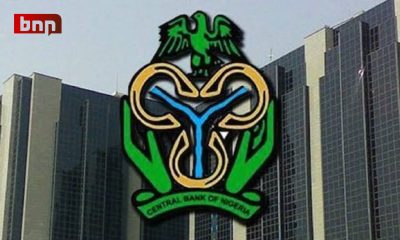By Odunewu Segun
The Central Bank of Nigeria (CBN) has blamed the current economic challenges facing the country on the past practice of frittering away huge oil earnings by past successive governments.
CBN’s Acting Director, Corporate Communications, Mr. Isaac Okoroafor, disclosed this recently while reacting to the calls by Organised Private Sector (OPS) to reverse its foreign exchange ban on 41 items, which the country can produce.
Okoroafor, said despite criticisms, CBN would not drop the policy nor bow to “self-serving” interests.
“We have observed with great concern the continued and unwarranted attack on our policies by a group of Nigerians, whose real interests, findings have shown, are anything near altruistic, but rather self-serving and unpatriotic,” Okoroafor said.
He said while the CBN respected Nigerians’ or stakeholders’ views, it found it curious that some interests have remained persistent in misinforming the public, with the aim of discrediting the genuine management of the economy.
Okoroafor said this could create distrust and panic within the financial system. “Indeed, self-centered individuals, who have failed to assail our patriotic position, have resorted to the sponsorship of serial propaganda to misinform and mislead the public on the objectives of our policies,” he said.
He said some unpatriotic elements were pushing for a reversal of the policy aimed at conserving forex, stimulating agriculture and manufacturing, and promoting exports.
“Our decisions on forex management are prompted by the challenge posed by the level of depletion of the country’s reserves, arising from issues, such as drastic reduction in oil earnings, speculative attacks and round tripping,” he explained.
According to him, the pressure on the foreign reserves has persisted due to huge reduction in monthly foreign earnings, which fell from over $3.2 billion monthly in 2013 to below $500 million last year, when the demand for the US dollar, particularly by importers, continued to rise.
Despite the challenges, the CBN has continued to ensure that there is liquidity and transparency in the forex market, while checking inflation, and promoting productivity in critical sectors of the economy, Okoroafor said.
However, the Organised Private Sector (OPS) members are not swayed by CBN’s position. Describing the policy as worrisome, they insisted that the apex bank’s unorthodox forex allocation system would continue to hamper growth.
The Lagos Chamber of Commerce and Industry (LCCI) Director-General, Mr. Muda Yusuf, said, in Lagos, that it was worrisome that the CBN had remained silent on some forex-related issues that were affecting the economy.
He listed them to include acute illiquidity, inflow impediments and too tight regulations on movement of funds.
Others, he said, were the effects of the forex policy on non-oil exports, its disincentive to foreign direct investments and the negative impact of the policy on portfolio inflows.
“Others are adverse effects on remittances by airlines, foreign investors’ dividends and profits; adverse effects on Diaspora remittances and the effects on investors’ confidence,” Yusuf said.

 Football1 day ago
Football1 day ago
 Business1 week ago
Business1 week ago
 Business1 week ago
Business1 week ago
 Education1 week ago
Education1 week ago
 Crime1 week ago
Crime1 week ago
 Covid-191 week ago
Covid-191 week ago
 Latest5 days ago
Latest5 days ago
 Business1 week ago
Business1 week ago













